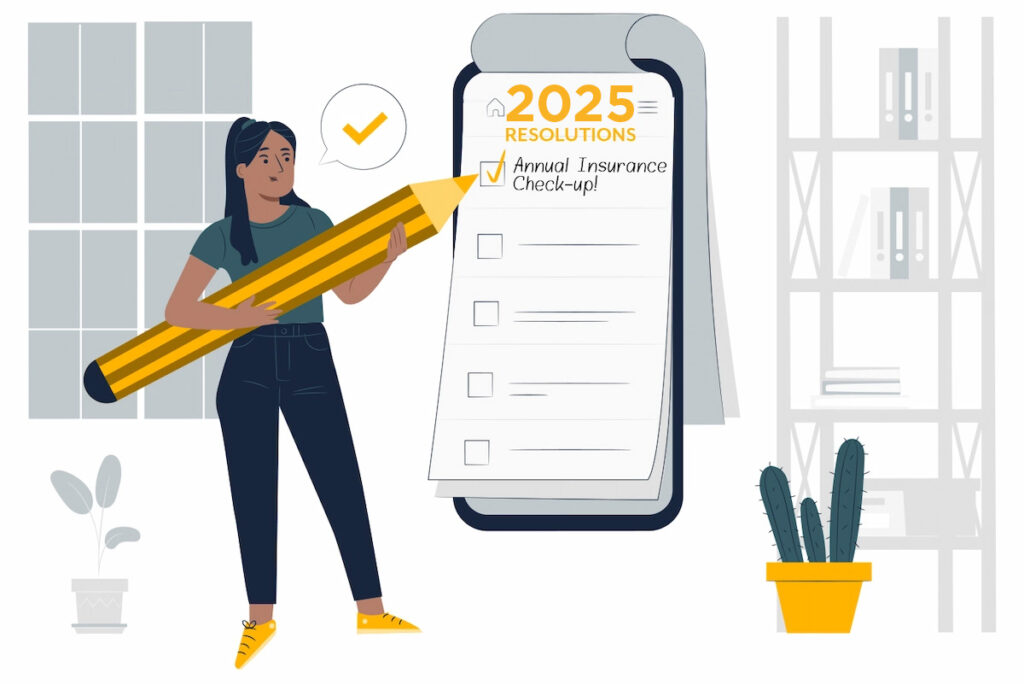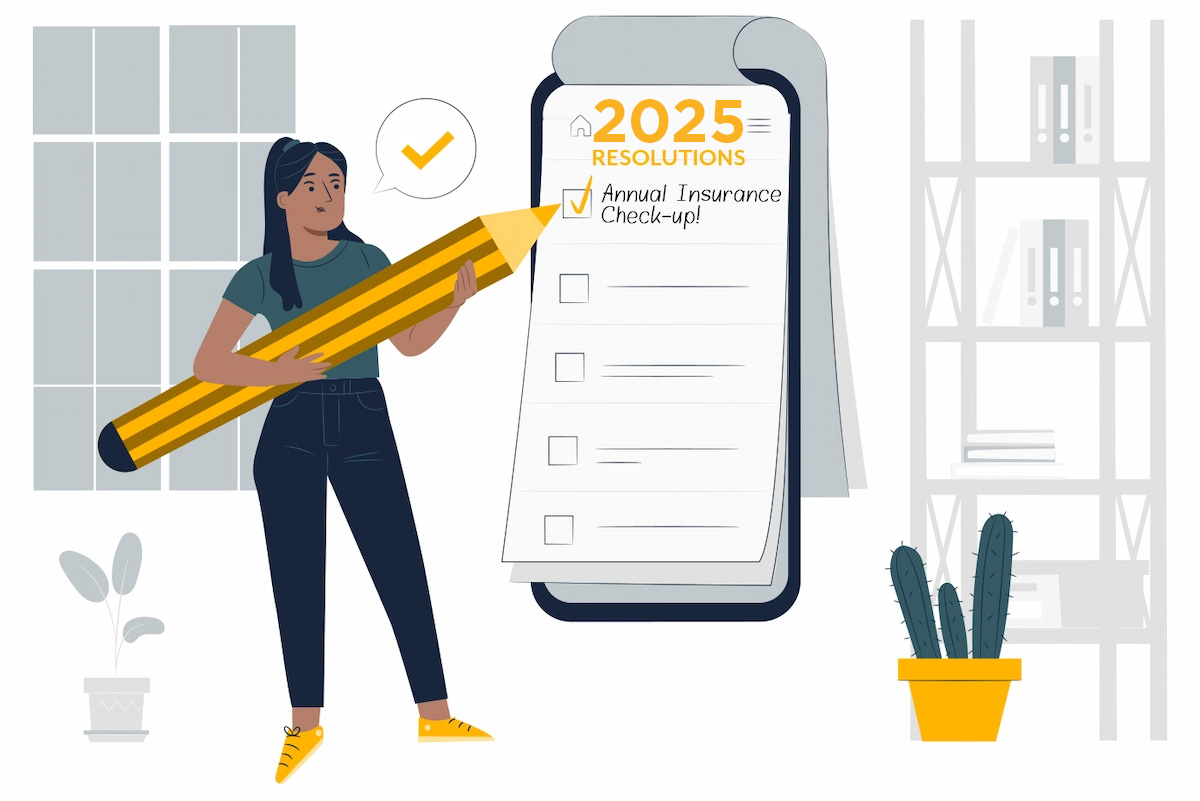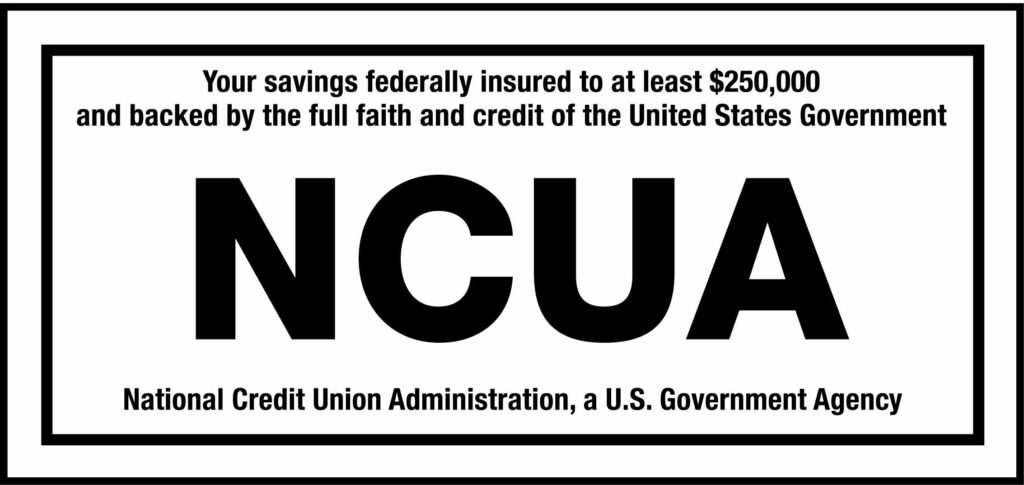Insurance Check-up New Year Resolution
Make An Insurance Check-Up Your New Year’s Resolution!

Insurance is not a “buy it and forget it” product. An annual check-up on your current insurance policies can result in a healthier policy and a healthier pocketbook.
Regardless of which types of insurance you own now, your coverage will probably need some adjusting over the years. You may even have to purchase new types of insurance that you didn’t need before.
An annual insurance checkup is a smart idea! Considering what new types of coverage you might need and reviewing your current coverage once a year, even if you don’t think there have been any significant changes in your circumstances, will help ensure that you stay adequately protected and avoid any unpleasant surprises if you ever have to file a claim.
To stay on track, do your annual review around the same time each year.
In addition to your routine annual insurance review, you should re-evaluate your coverage any time there is a life event or significant change in your circumstances that either increases or decreases your risk—and, therefore, your need for protection.
Home, Auto, and Property Insurance:
This area of insurance changes frequently which means there could be opportunities to get more coverage and perhaps save money. It isn’t unrealistic to consider getting new bids for all your non-life policies every year to be certain you’re not spending too much or getting too little for your dollar. It is also a good time to make sure your home policy covers any upgrades or additions you’ve made to your home since its original purchase.
Life Insurance:
You might think you already did an in-depth review of your needs when you originally purchased your life insurance policy. At that time, you considered your family’s financial needs, took inflation into consideration, and decided on a coverage amount and term. Yet, every new year brings changes into our lives, such as weddings, births, divorces, new jobs, new roles, variations in salary, etc. These important events should be reflected in your life insurance policy to ensure it is keeping up with your expectations.
Available Insurance Offers and Products
AGCU Insurance offers over 20 different types of insurance. This includes traditional home and auto insurance but also includes other policies like pet and wedding insurance. Here are some of the most popular insurance policies currently offered:
- Auto, Motorcycle, and Scooter
- Boat, ATV, and Recreational Vehicle
- Life
- Home, Condo, and Vacation Homes
- Wedding
- Landlord Policies
- Renters
- Pet
- Valuable Items
- Flood, Sinkhole, and Disaster-related
- Home Warranties
Reviewing your life insurance is not as complicated as you might think. All you have to do is consider the following points:
-
- What’s changed in your life since the policy was purchased? Have you gotten married, divorced, or expanded your family? Does the original need the life insurance policy was intended to meet still hold true today?
- Relationships and obligations change over time. Does your beneficiary selection need to be revisited? If so, call 866-508-2428 or 417-447-9356 or Email: insurance@agcu.org, and we will send you the appropriate form.
- Have you changed addresses?
- Your financial circumstances or lifestyle may have changed over the years. Have you acquired more debt or increased your income? For your loved ones’ sake, be sure your policy is keeping track with these changes.
- Have you lost a significant amount of weight or quit smoking? Improving your health is not only good for your life, it might be good for your life insurance coverage. Call us to find out.
- Check the expiration date on your term policy. It’s important to keep track of this so you can extend it if necessary.
Your AGCU insurance professional will be familiar with your current coverage and can provide valuable guidance regarding what you need to stay adequately protected and even how to save money on premiums.
Block out an hour, call an insurance agent, and get answers to these important questions.
What Type of Coverage Do I Have?
How Much Coverage Do I Really Need?
How Can I Lower My Premiums?
What are my deductibles and discounts?
The Best Coverage at the Right Price
In order to ensure that you’re getting the most bang for your buck, AGCU Insurance is dedicated to minimizing fees, loading on discounts, and offering competitive policies. There are a variety of discounts available. These include multi-car, multi-driver, new car, paperless, multi-policy, good student, and many others.
Additionally, AGCU Insurance offers free coverage checkups.
If you live in Arkansas, Kansas, Missouri, Oklahoma, or Texas, Fill out the Quote Request Form at the top of the page, or contact Sherrie and Dee today to obtain a quote!
Phone: 866-508-2428 or 417-447-9356
Email: insurance@agcu.org
If you live outside of those five states, visit the AGCU InsuranceAisle website or call 866-397-4086 for more information.
Banking With A Purpose
Much more than a catchphrase, our tagline is our passion, our reason why we do what we do. This is the impact of your membership with AGCU. Learn More About Banking with a Purpose







